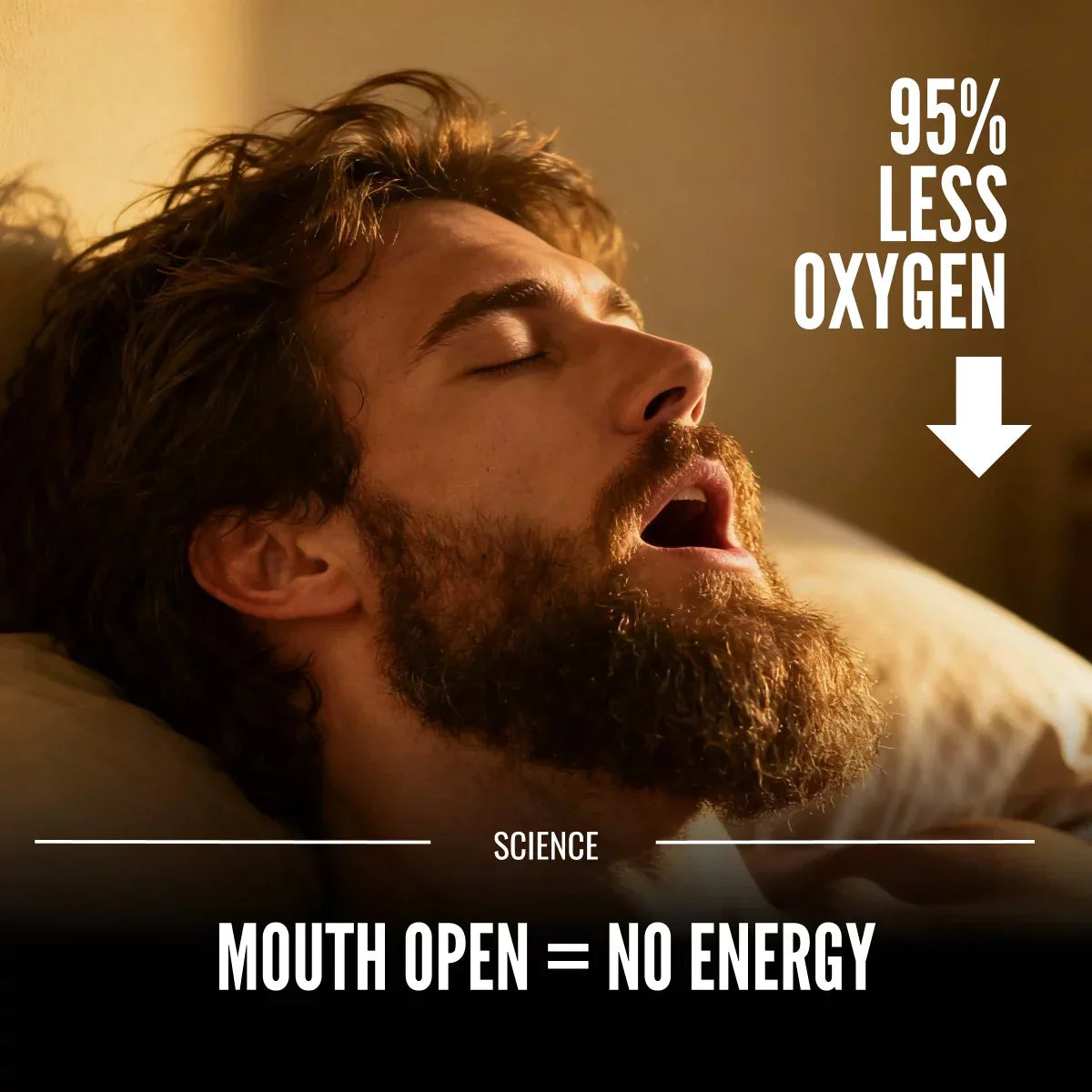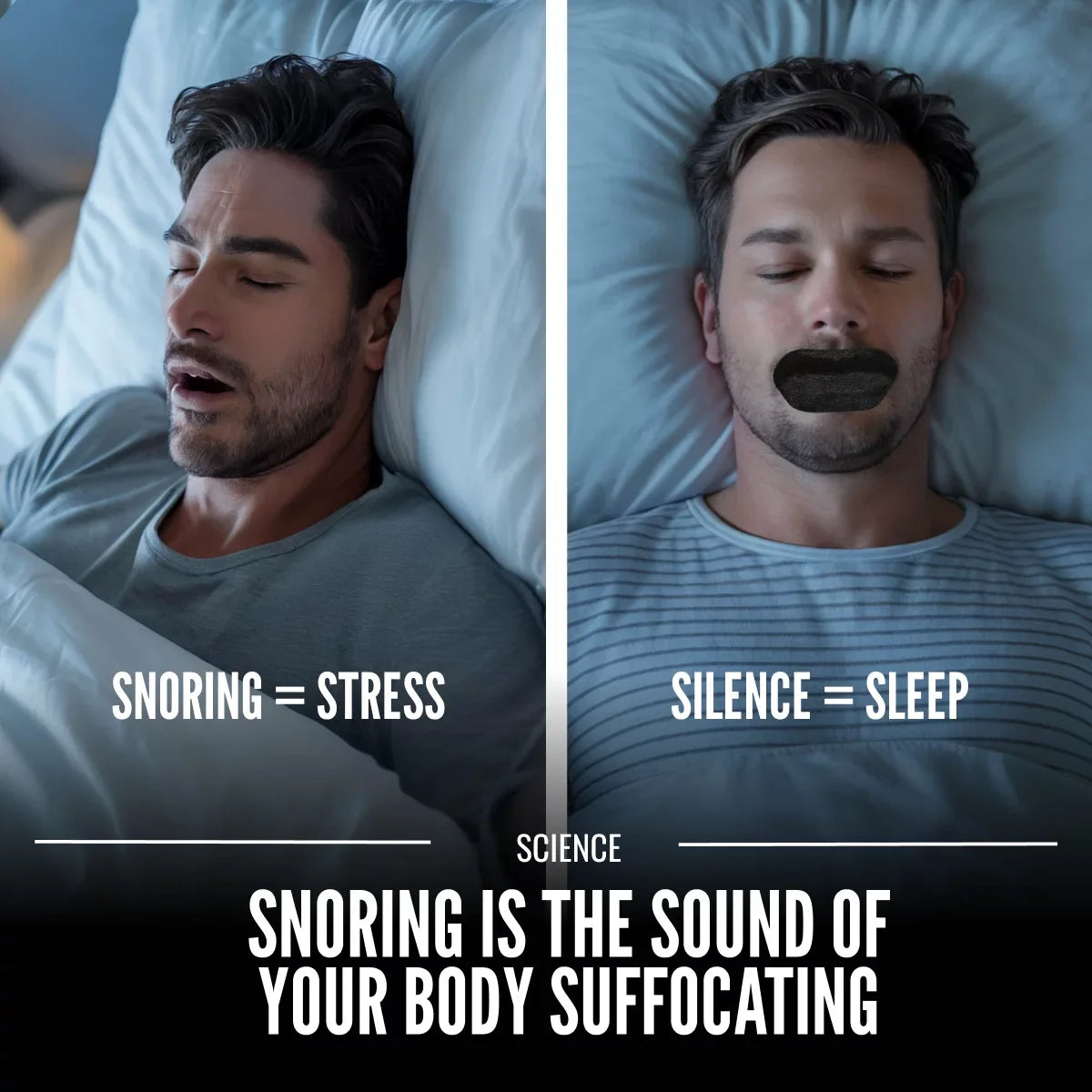Breathing is a fundamental part of life. We often take it for granted, not realizing the impact it has on our health.
But did you know that the way you breathe can significantly affect your well-being? Specifically, mouth breathing can pose several health risks.
Mouth breathing refers to inhaling and exhaling through the mouth instead of the nose. While it might seem harmless, it can lead to a host of problems.
From sleep disturbances to dental issues, the dangers of mouth breathing are far-reaching. It can even alter facial development in children and affect cognitive function.
In this article, we'll delve into the risks associated with mouth breathing. We'll also explore solutions to mitigate these risks and improve your respiratory health.
So, whether you're a chronic snorer, a concerned parent, or simply health-conscious, read on to understand the importance of proper breathing.
The Mechanics of Breathing: Nose vs. Mouth
Understanding how we breathe is crucial to recognizing mouth breathing problems. Breathing through the nose has several benefits that mouth breathing lacks.
- Filters: Nose hairs trap dust and pollutants.
- Moisturizes: Nasal passages add moisture to the air.
- Warms: The air gets warmed before reaching the lungs.
Conversely, mouth breathing bypasses these natural filters. This can lead to a higher risk of respiratory infections and dry mouth. By neglecting the nose's capabilities, mouth breathing opens the door to various health issues.
Who is at Risk for Mouth Breathing?
Mouth breathing can affect anyone but is more common in certain groups. Children often develop this habit due to allergies or enlarged tonsils.
Adults aren't immune either. Many who snore or suffer from sleep apnea tend to breathe through their mouths. Facial hair, like beards, can also contribute by trapping allergens near nasal passages.
Recognizing Mouth Breathing Symptoms
Common symptoms include:
- Dry mouth upon waking
- Persistent bad breath
- Snoring and poor sleep
- Daytime fatigue and trouble concentrating
- In children: dental issues, speech problems, and facial development changes
The Health Implications of Mouth Breathing
Mouth breathing can lead to:
- Dehydration and skin dryness
- Increased risk of cavities and gum disease
- Snoring and sleep apnea
- Changes in facial growth (children)
- Cardiovascular stress and high blood pressure
- Cognitive fatigue and reduced focus
- Higher susceptibility to respiratory infections
Solutions and Preventative Measures
- Address root causes like allergies or congestion
- Maintain hydration and a balanced diet
- Practice stress reduction and mindful breathing
- Use aids like nasal dilators, saline sprays, or mouth tape
- Consult a dentist or sleep specialist if needed
Mouth Tape: A Simple Aid for Better Sleep
Mouth tape helps secure the lips shut during sleep, encouraging natural nasal breathing. This can reduce snoring, improve oxygen intake, and promote restful sleep. Start slowly, using the tape for short periods, and gradually increase use as you become comfortable.
Conclusion
Mouth breathing poses numerous health risks, but with early recognition and simple interventions, you can restore healthy nasal breathing. Better breathing means better sleep, oral health, focus, and overall well-being.
Stop snoring with beard-friendly mouth tape and get better sleep with Hostage Tape. Trusted by 150,000+ mouth tapers. Doctor approved.







Share:
Mouth Taping with a CPAP: What You Need to Know
What Is the Best Mouth Tape for Sleep? (With Hostage-Worthy Precision)